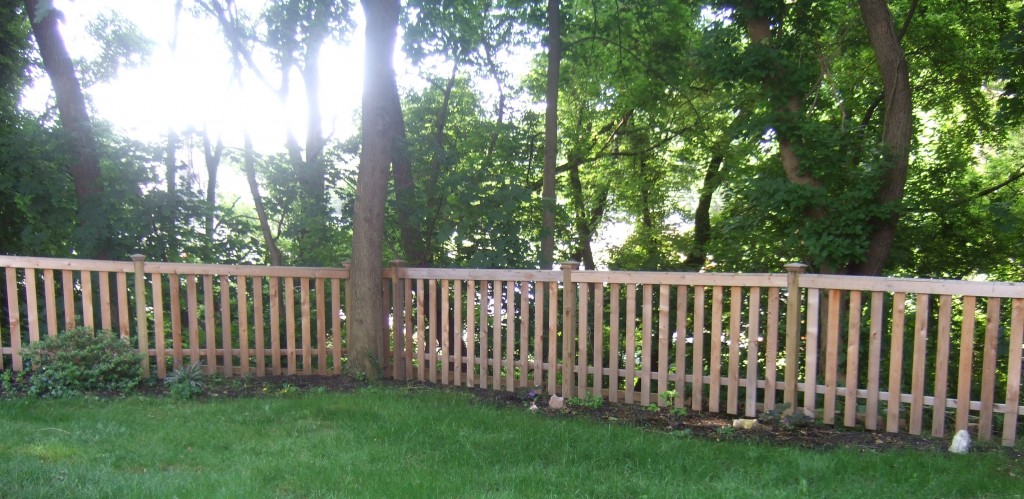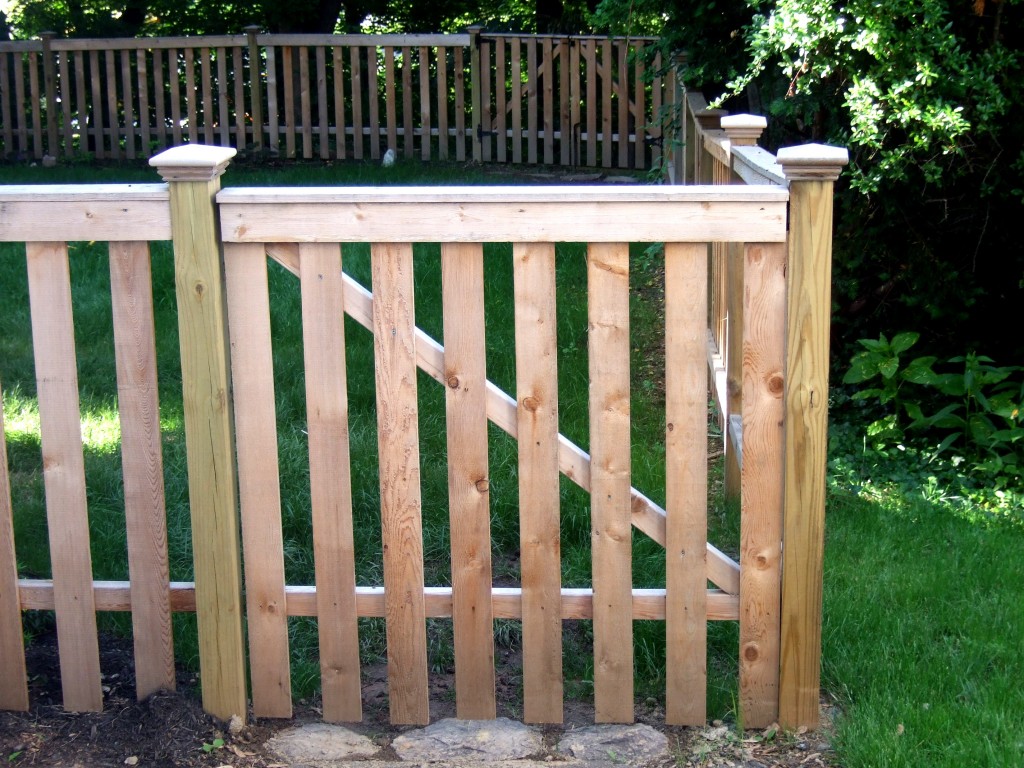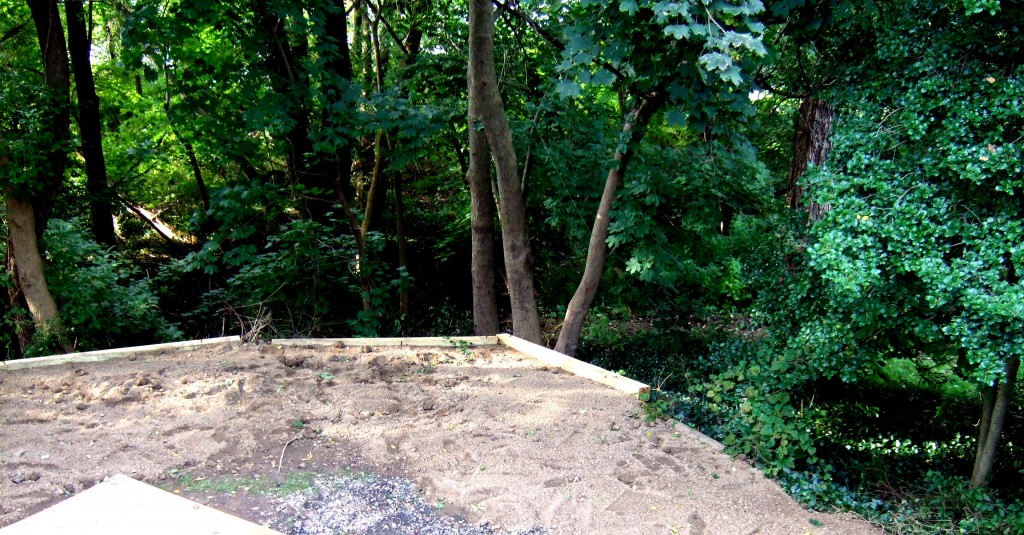A Paradise Outside, a Peace Inside
“There is more pleasure in making a garden than in contemplating a paradise.”
– Anne Eleanor Scott-James, Lady Lancaster
One of Britain’s first women journalists
How did you spend last summer? I spent it moving nine tons of chopped asphalt. Sure, I did other things, but the asphalt was a big part of it. I was not alone,* thankfully, but my wife and I were the driving forces behind a project which, at its essence was simple; tear up the parking lot in our back yard and make it an actual back yard in which our daughter can frolic safely.
Here are some shots of the before:
Here is another peek at the after:
Chopping asphalt, hauling asphalt and dirt, grading dirt, feeding dirt, planting grass, planting plants, and building garden beds may not sound like a great way to spend the summer, but it was—and still is—great. The process itself held some hidden rewards, and the results offered lasting benefits which we continue to reap. Do you want that? I say you do. Is it worth dirty hands and an achy body, I say heck yeah. Join me in my back yard, walk with me through the process and I will surely convince you that yard work is heart work and heart work brings restoration.
The Hidden Treasure of an Aching Body
“No occupation is so delightful to me as the culture of the earth, and no culture comparable to that of the garden.”
– Thomas Jefferson
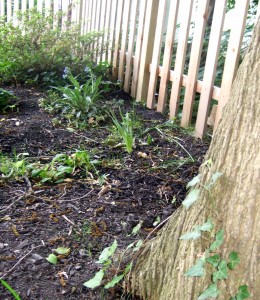 Yes, that Jefferson. The guy who planted the seeds of our American culture thought that it didn’t compare to “that of the garden.” How’s that for a poke in the eye? What might Jefferson have seen in culture which he weeded out of his garden? My guess would be the social ills. The anxiety, depression, low self esteem, body image issues, stress, hopelessness, powerlessness and worthlessness. I feel some of that every day. You feel some of that every day. Jefferson felt some of that every day. Though Jefferson never heard of the Association for Applied Sport Psychology, I’m sure he would concur that “As little as 10 minutes” of exercise—like yard work—can “have a positive effect” on everything from mood rebuilding, stress reduction and energy boosting to promoting “psychological well being” and decreasing “symptoms of depression.”
Yes, that Jefferson. The guy who planted the seeds of our American culture thought that it didn’t compare to “that of the garden.” How’s that for a poke in the eye? What might Jefferson have seen in culture which he weeded out of his garden? My guess would be the social ills. The anxiety, depression, low self esteem, body image issues, stress, hopelessness, powerlessness and worthlessness. I feel some of that every day. You feel some of that every day. Jefferson felt some of that every day. Though Jefferson never heard of the Association for Applied Sport Psychology, I’m sure he would concur that “As little as 10 minutes” of exercise—like yard work—can “have a positive effect” on everything from mood rebuilding, stress reduction and energy boosting to promoting “psychological well being” and decreasing “symptoms of depression.”
But Yard Work is not Real Exercise, right?
This is actually a common misconception about yard work. That real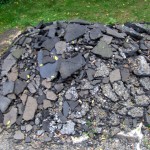 exercise is done in a gym, with weights, or on a run and only real exercise can bring about the psychological benefits above. Really? Ripping up and moving all that asphalt wasn’t exercise? What if that picture was only the smaller of two piles? Attila Szabo, PhD has an awesome name and he disagrees. He’s a Reader in Sport and Exercise Psychology, School of Science at The Nottingham Trent University, and he published an article in the Journal of Sports Science and Medicine which found that the most crucial factor in the psychological benefit of exercise is not intensity or duration but your control of the outlet and perspective on the job. Or, as he put it, “subjective cognitive appraisal of the whole exercise session in which control over exercise workload is instrumental.” In short, Attila says it’s not what you do; it’s how personal the exertion is which nets the results.
exercise is done in a gym, with weights, or on a run and only real exercise can bring about the psychological benefits above. Really? Ripping up and moving all that asphalt wasn’t exercise? What if that picture was only the smaller of two piles? Attila Szabo, PhD has an awesome name and he disagrees. He’s a Reader in Sport and Exercise Psychology, School of Science at The Nottingham Trent University, and he published an article in the Journal of Sports Science and Medicine which found that the most crucial factor in the psychological benefit of exercise is not intensity or duration but your control of the outlet and perspective on the job. Or, as he put it, “subjective cognitive appraisal of the whole exercise session in which control over exercise workload is instrumental.” In short, Attila says it’s not what you do; it’s how personal the exertion is which nets the results.
Dirt Under Your Fingernails is Not Therapeutic, it’s Dumb Labor
“The soul cannot thrive in the absence of a garden. If you don’t want paradise,
you are not human; and if you are not human, you don’t have a soul.”
-Thomas Moore,
The Re-Enchantment of Everyday Life, 1996, p. 101
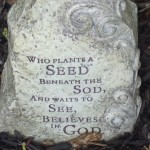 Meet misconception number two. Our modern culture has devalued tasks done with the hands and, in my estimation, placed an inflated value on sitting at a desk. But if you’re anything like me, you’ve taken some damage at that desk. Many office jobs, especially the ones I’ve had, offer us much in the way of stress, and little in the way of feeling of accomplishment, worth or impact.
Meet misconception number two. Our modern culture has devalued tasks done with the hands and, in my estimation, placed an inflated value on sitting at a desk. But if you’re anything like me, you’ve taken some damage at that desk. Many office jobs, especially the ones I’ve had, offer us much in the way of stress, and little in the way of feeling of accomplishment, worth or impact.
It is hard to feel impactual if the in-box refills even before the out-box empties. It is challenging to feel accomplished when the results of our efforts happen somewhere further down the work flowchart, which makes it difficult to estimate our worth.
The remedy? Grab a rake. “One of the best things about doing yard work is the instant gratification,” according to a North Carolina State University article, “When the task is finished, the accomplishment is visually appealing. The worker can look back on…a lawn free of leaves, a bed free of weeds, or beautiful looking flowerbed free of sticks and twigs. There is a great sense of pride and self-confidence in seeing the immediate impact of a job well done. And for a time, short though it may be, the stress of everyday life is forgotten.”
It is no surprise that yard work has been suggested to those with anxiety issues, since anxiety—no matter chronic or every-day variety—is impacted by perceived levels of control vs. feelings of powerlessness. The more control over something, the more estimation of one’s own impact, the less anxiety symptoms. The Battersea Garden Project in London has been using therapeutic gardening to help people cope with a myriad of emotional issues. Yet you don’t need to have emotional issues to have positive emotional results. Gavin McCabe, who is combating schizophrenia, told the BBC that the sense of achievement which he gets from his gardening is one that “most people can feel” no matter if it’s “growing tomatoes or bulbs.”
Planting for a Season; Reaping for a Lifetime
“A society grows great when old men plant trees
whose shade they know they shall never sit in.”
-Greek proverb
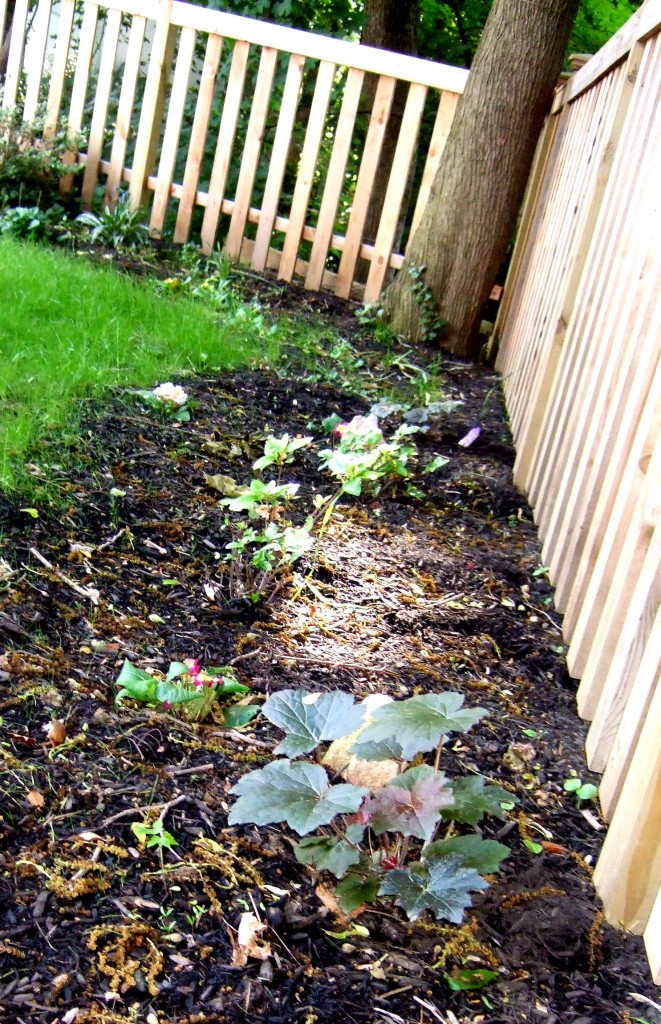 Many of the benefits above seem momentary; that “Ah!” after a hard day’s work. But the lasting benefits are the striking ones. These are the ones which truly provoked me to pen these words and share my back yard with you. These are the ones which have had me in that back yard for much of my vacation this week. These, and the fact that Suz and I are far from done.
Many of the benefits above seem momentary; that “Ah!” after a hard day’s work. But the lasting benefits are the striking ones. These are the ones which truly provoked me to pen these words and share my back yard with you. These are the ones which have had me in that back yard for much of my vacation this week. These, and the fact that Suz and I are far from done.
According to the Association for Applied Sport Psychology, we can also improve our self esteem by retaining a sense of pride in our physical accomplishments, which will increase our estimation of our personal abilities and self confidence. We can increase our ability to cope with stress, and most importantly, when we build a back yard, or any garden, we create a sanctuary.
Numerous studies all point to the same fact; We find restoration and renewal in natural environments. Our heart rates slow, our minds focus, our hearts turn to our more generous natures. Really. Check the studies. Our back yard is the place for Illyana to play, but it’s also the place for Suzanne and I to come and soak in the beauty. While soaking in the beauty it becomes impossible to avoid reminiscing over the accomplishments, groaning good-naturedly over the trials, and hoping for the next project to come. Thus, all of the benefits listed above are renewed, even after a hard day of desk work, because they have been planted the fertile soil of our hearts. We all need that. I need that. Thomas Jefferson and the Greeks knew that. Gardening is hoping for the future. Planting is focusing on a more beautiful future in a rock solid way, and that is a freeing experience. Building our sanctuary takes us only time, sweat and money. The investment into the emotional and physical health of our family has already been repaid.
Jealous? Excited? Good. Go get dirty.
K
_______________________________________
*Thanks to my Dad, Justin, Jefe, Jay, Marty, Matt and Nelson for all their kindness and sweat.

